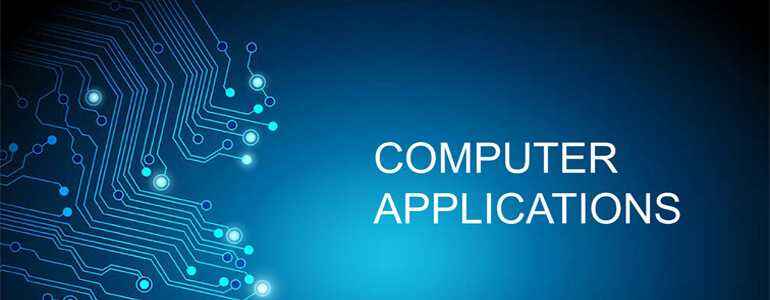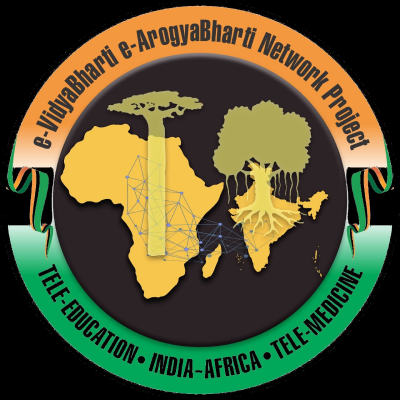Diploma in Computer Applications
- Home
- Diploma in Computer Applications

Diploma in Computer Applications
Duration:
1 Year (2 semesters)
Eligibility:
12th Pass
Annual Fees:
 9,900/- (inclusive of taxes)
9,900/- (inclusive of taxes)
Program Objectives:
- Diploma program is aimed at towards building a prospective career in the field of computer application.
- The program is designed with the objective to provide knowledge and skills in the various aspects of computer applications and core programming.
- Students will also be trained in the latest trends of information technology.
Diploma in Computer Applications Course About the Program :
Our diploma in computer applications course is a one year course that is designed to impart both the practical and theoretical aspects of computer application. You will learn the latest trends in the IT field and the concepts of core programming languages as well.
Program Overview:
- Certification from # ranked university
- Individualized mentoring programs
- Placement assistance with top It firms
- Dedicated career and professional counseling
- Designed to help you learn from anywhere in the world
Diploma in Computer Applications Who is this course for?
The Diploma in Computer Applications course is designed for higher secondary graduates (10+2) who wish to enter into the IT and computer science fields.
36 Subjects | Projects | Assignments | 1 Year | 2 Semesters
- Learn the basics of information technology
- Learn the basics of digital electronics and system design
- Understand the Internet of Things and Cryptography
- Understand C+ and C++ programming and applied mathematics
- Learn Python programming, networking, and cybersecurity
- Understand database programming and web application security
Diploma in Computer Applications Course Course Benefits:
Learning Support:
During the course of your one year journey with us, we will ensure that you have the best academic guidance and learning support. Your progress will be monitored with clear and concise feedback to ensure you know where you stand.
Networking
Through our peer-to-peer and industry networking workshops, you will be able to exchange knowledge and ideas. We ensure that upon completion of the Diploma in Computer Applications course you are well equipped with the tools to succeed in the industry.
Doubt Resolution:
Making the shift from higher secondary to graduate or diploma programs can be daunting. To ensure that your transition happens smoothly, our doubt resolution experts and academic guidance counselors are available virtually for all clarifications.
Career Counselling:
Choosing the right career path upon completion of the Diploma in Computer Applications can be difficult. Our career counseling programs will guide you on the path and help you make the best choices.
Diploma in Computer Applications Admission Process:
Our admission process for the Diploma course is quick and simple. Our internal team will review your application and make assessments based on your academic merit and admission criteria. We will ensure that we keep you abreast of all developments as we go through your application.
| 1 | UNIT 1: Introduction to Computer |
| 2 | UNIT 2: Basic Components of Computer |
| 3 | UNIT 3: Introduction to OS |
| 4 | UNIT 4: MS DOS Operating System |
| 5 | UNIT 5: MS Windows Operating System |
| 6 | UNIT 6: LINUX Operating System |
| 7 | UNIT 7: Microsoft Word-Part I |
| 8 | UNIT 8: Microsoft Word-Part II |
| 9 | UNIT 9: Microsoft Excel |
| 10 | UNIT 10: Functions of Excel |
| 11 | UNIT 11: Microsoft PowerPoint |
| 1 | UNIT 1: Number Systems |
| 2 | UNIT 2: Boolean Algebra |
| 3 | UNIT 3: Logic Gates |
| 4 | UNIT 4: Combinational Circuits |
| 5 | UNIT 5: Sequential Circuits |
| 6 | UNIT 6: Memory Organization |
| 1 | UNIT 1: Introduction to Programming |
| 2 | UNIT 2: Operators and Expressions |
| 3 | UNIT 3: Decision and Control Structures |
| 4 | UNIT 4: Storage Class |
| 5 | UNIT 5: Functions |
| 6 | UNIT 6: Arrays and Pointers |
| 7 | UNIT 7: Structures and Union |
| 8 | UNIT 8: File Handling |
| 1 | UNIT 1: Basics of Computer Network |
| 2 | UNIT 2: Network Models |
| 3 | UNIT 3: Transmission Media |
| 4 | UNIT 4: Internet Basics |
| 5 | UNIT 5: UNIT 5: Static Web Page Design |
| 6 | UNIT 6: HTML Tags and XML |
| 7 | UNIT 7: JavaScript |
| 1 | UNIT 1: Digital Component |
| 2 | UNIT 2: Input-Output Organization |
| 3 | UNIT 3: Memory Units |
| 4 | UNIT 4: CPU Organizations |
| 5 | UNIT 5: UNIT 5: Multi-Processor Organization |
| 6 | UNIT 6: Pipelining |
| 1 | UNIT 1: Introduction to Data Structure |
| 2 | UNIT 2: Algorithms |
| 3 | UNIT 3: Linked List |
| 4 | UNIT 4: Stack |
| 5 | UNIT 5: Queue |
| 6 | UNIT 6: Searching |
| 7 | UNIT 7: Sorting |
| 8 | UNIT 8: Trees |
| 9 | UNIT 9: Graph |
| 1 | UNIT 1: File Structure and Organization |
| 2 | UNIT 2: Database Management System |
| 3 | UNIT 3: Data Models |
| 4 | UNIT 4: Relational Databases |
| 5 | UNIT 5: SQL (Part I) |
| 6 | UNIT 6: SQL (Part II) |
| 7 | UNIT 7: Relational Database Design |
| 1 | Paper - VIII Project |
| 2 | A project report has to be submitted as per the given guidelines |
Diploma in Computer Applications Course: FAQ’s
1. Is it worth getting a diploma in computer applications?
A diploma in computer applications is a relatively quick course and sets up for further studies or if you wish to enter into the field of computer science. It is also relatively less expensive compared to a three-year graduate course.
2. How to apply for a computer application’s diploma course?
The application process is relatively straightforward, you can apply for the course online and submit your certificates and academic transcripts online as well.
3. What are the career options after this course?
Upon completion of the Diploma in Computer Science course you will be able to apply for entry-level jobs in the IT industry. You can work as a software developer, computer operator, C++ programmer, etc.
4. How long is the duration of this diploma course?
This is a one year program designed for higher secondary graduates (10+2).
5. What is the full form of DCA?
DCA stands for Diploma in Computer Applications.
5. What are the subjects in the DCA course?
Some of the primary subjects include Computer Fundamentals and PC Software, Introduction to Operating Systems, Digital Logic, Fundamentals of Networking and Technology, Data Structure Through C Language, and Fundamentals of Database Management.
6. What can I do post the DCA?
You can pursue a post-graduate diploma in the same or related fields. You can also choose to work in the IT and computer science fields.
7. What is a PGDCA?
PGDCA stands for Post-Graduate Diploma in Computer Science.
8. Which is better DCA or PGDCA?
The Diploma in Computer Applications is a program designed for higher secondary graduates whereas the PGDCA is designed for those who have completed the DCA.
9. What is the Diploma in Computer Applications course fee?
The Diploma in Computer Applications is a program designed for higher secondary graduates whereas the PGDCA is designed for those who have completed the DCA.

The Government of India offers 100% Scholarship to students from partner African Countries through e-VidyBharati and e-ArogyaBharati (e-VBAB) Network Project to pursue ONLINE Undergraduate, Postgrauate, Diploma and Certificate programmes from various reputed Indian Universities/ Institutes in various disciplines including computer application, business administration and commerce, healthcare, tourism, humanities and arts etc.
